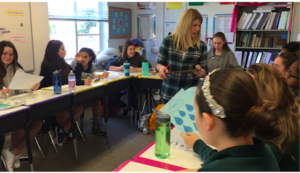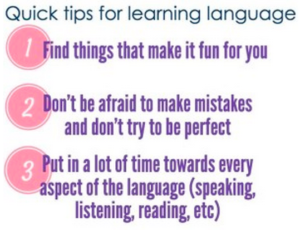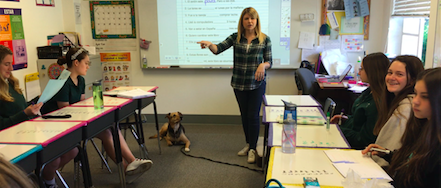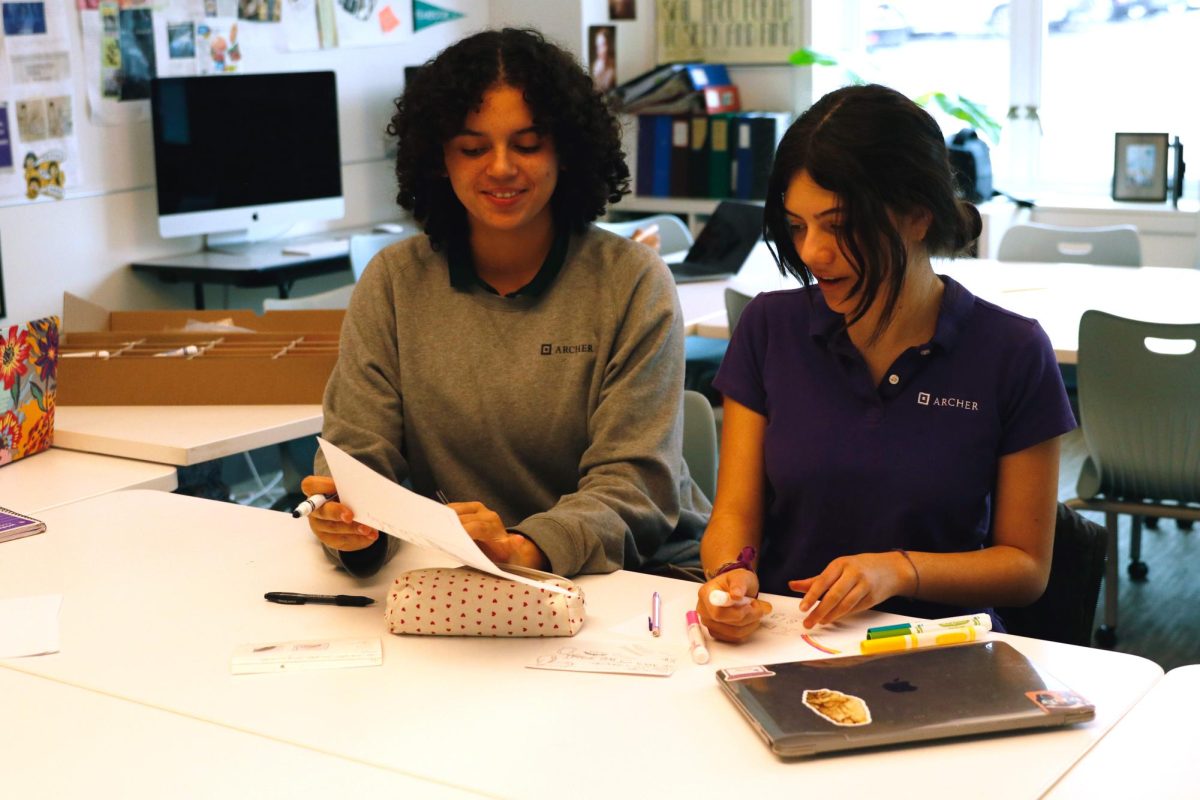Hola, bonjour, ni hao. These three phrases mean hello in Spanish, French and Chinese respectively.
Spanish teacher Rachel Lauster, French teacher Sylvie Escande and Chinese teacher Susan Chen shared their opinions on the best way to master a new language with The Oracle.

Why is learning a language important?
According to The American Council on the Teaching of Foreign Languages, learning a foreign language supports academic achievement, provides cognitive benefits to students and causes people to gain respect towards the target language and the speakers of the language.
Archer language teachers agree that learning a foreign language provides people with immense amounts of benefits and expands their horizon.
Lauster has been teaching Spanish for seven years and feels that speaking Spanish is part of her identity. She embraces being bilingual and appreciates the benefits that come along with it.
Escande, who has been teaching French for about 28 years, said that language means discovering other cultures. To her, language is like “entering another planet.”
“I always loved learning different languages because I was exposed to a lot of them, and I think it’s important mainly because of the culture — it opens your mind,” Escande said.
Chen has been teaching Chinese for three years. This school year is her first year teaching at both middle and high school levels. She said that Chinese means a lot to her because it is her native language, and it’s very interesting and complex to learn.
“Learning a foreign language will open you up to many different ways to build a world and to understand so many different cultures,” Chen said.

How can students learn language most effectively?
“I think there has to be an internal desire to learn the language and by making it engaging and finding ways for students to make it applicable to their everyday lives,” Lauster said.
Escande mentioned that students learn the best then they really use the language.
For Escande, students learn best “when they do something, when they act, when they speak and when they use it,” she said.
Chen said she thinks students learn best if the teacher makes the class interesting, and the teacher cannot be the one doing all the talking. The students need to be active in their learning.

What’s the secret to learning a new language?
“I wish there were a secret, there’s not,” Lauster said while laughing. “I would share it if I knew it, but I think it’s a combination between giving students material that is just above what they are capable of so that you feel supported and confident, but also hard enough so that you are always stretching and growing.”
Escande highlighted the importance of listening.
“Listen, listen, listen. Not just to the teacher — it can be boring — but listen and read and don’t think that you are going to be perfect, just think that you are two years old again,” Escande said.
Chen mentioned how necessary it is to put in quality dedication to learning a language.
“The secret to learning language is to spend a lot of time and effort, and you will be rewarded greatly,” Chen said.
Collectively amongst the three teachers, there are common values in learning a language – the many opportunities and new perspectives it can open up.
“Once you become bilingual it’s such a cool, powerful tool, and it’s been a way for me to travel all around the world and meet all these different people and form relationships,” Lauster said.
Watch Lauster’s Spanish class in action:
Spanish class in action from Oracle on Vimeo.
Correction: An earlier version of this article incorrectly quoted Sylvie Escande. Her quote has been changed to “planet” instead of “plane.” (Correction made 5/23/16 at 12:08 p.m.)










